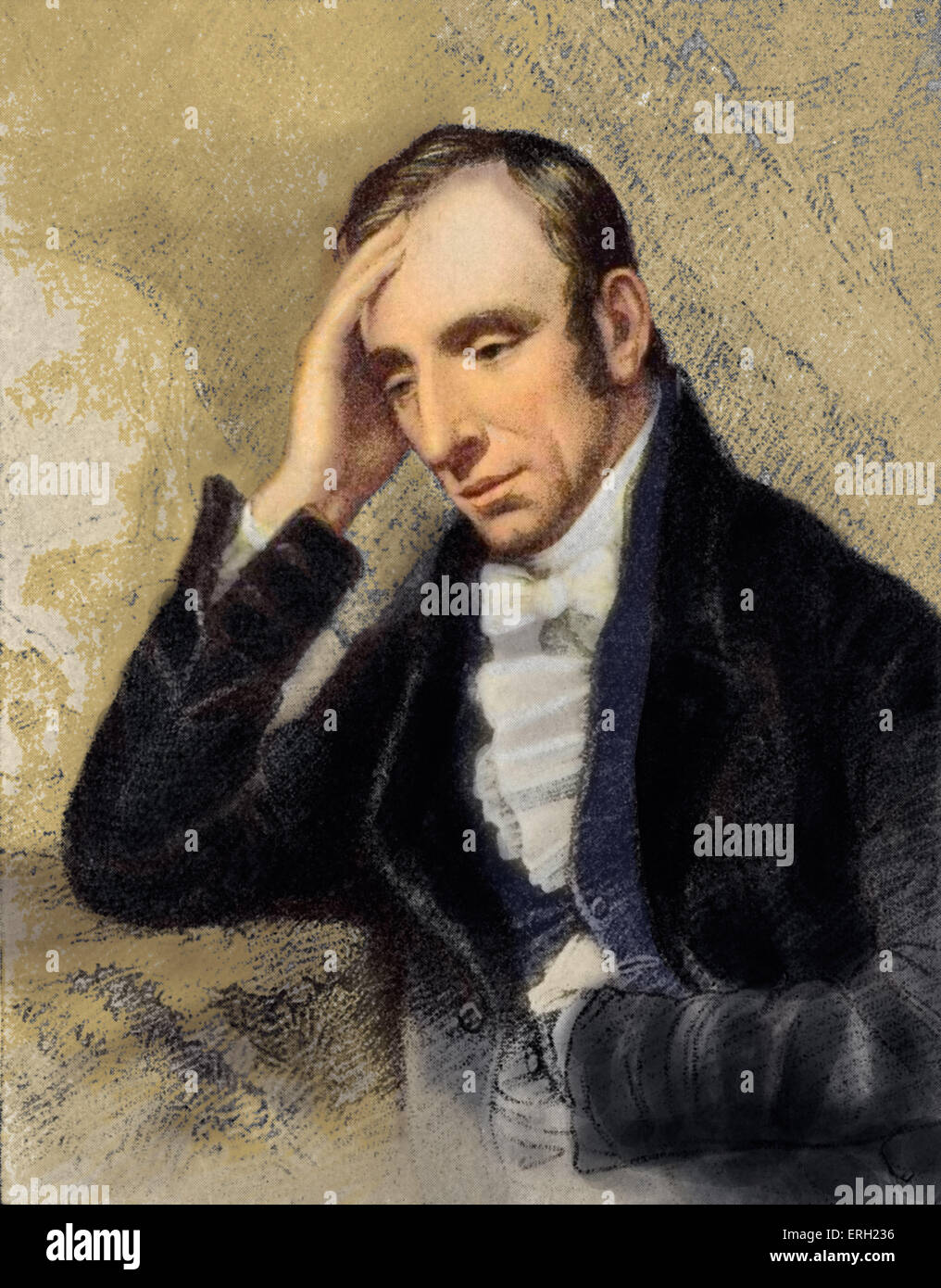


The effects of the French and the Industrial Revolution on the common people was prevalent in Wordsworth’s writing, and he was keen on portraying lives of common people, including children, making it realistic and representative of of authentic contemporary society (Choudhury). His poems not only call on the morals of his country and ask if they are there, but they also help out the marginalized groups of England.

These lines describe the ideal character of a strong, powerful, representative English man, specifically a politician, that would give his nation honor. Along with this, he describes them as men that “rise to the station of command / On honorable terms” (Wordsworth) and men that “do not stoop, nor lie in wait / For wealth, or honours, or for wordly state” (Wordsworths). He says that the “Happy Warrior” has “high endeavours of an inward light / That makes the path before him always bright” (Wordsworth). He questions who the “Happy Warrior” is, continuing on to answer his own question throughout his work. Wordsworth describes men of power and explores the theme, how strong leaders can repair a broken society, through his use of symbolism and spiritual rhetoric. Through his symbols of altars, swords, and pens, Wordsworth conveyed that he thought that England had lost their tradition and values during the European revolutions and that Milton could help.Īdditionally, Wordsworth wrote the political piece titled “Character of the Happy Warrior”, written in the trochaic tetrameter, that explored the characteristics of a good, English, common man. Through these lines, he explains that England needs Milton as “she” has different altars (religion), sword (military), and pen (art) then when Milton was there assisting the arts, and Wordsworth believed that the time Milton was on Earth was better. His lines of “Milton! Thou should be living at this hour: / England hath need of thee: she is a fen / Of stagnant waters: altar, sword, and pen” (Wordsworth) utilize an apostrophe, while describing the predicament England is in. Throughout the poem he used an apostrophe by the name of “Milton”, and he explained that he believed the deceased “Milton” can give the lost foundation back to England through his writing. In his poem titled “London, 1802”, Wordsworth explored the loss of English morals and tradition. Some of Wordsworth’s most popular poems have dealt with the politics and revolutions occurring during the peak years of British Romanticism. This led him to begin writing more about the spirituality of nature rather than politics. Because of this, he was ridiculed for “selling out” to the Establishment during the revolutions. However, as he grew older, he became more conservative in his outlook. This included the poor, discharged soldiers, widowed women, the “insane,” and children (The British Library). For this reason, he tried to give a voice to those who tended to be marginalized and oppressed by society. Specifically, William Wordsworth believed poetry should be democratic, and he advocated for the common man. The poet also believed they were only at “peace in nature” (the British Library). They used this to write about supernatural energy and beauty. It started during rebellions and violence throughout Europe, so while focused on nature, most poets believed they were chosen to “guide” others through the changes and turmoil.Īs a way to incite hope, poets believed something existed beyond the physical world. British Romanticism was an era of literature that lasted from 1800-1850. In turn, Coleridge and Wordsworth were said to be the creators of British Romantic poetry. These poems became some of the most influential in Western Literature (Poets). Soon after, he wrote “Lyrical Ballads” in 1795 with Samuel Taylor Coleridge’s aid. His experience in college and on his adventures greatly influenced his poetry dealing with political sensibility and the “Common Man.” His earliest poetry was published in 1793 in “An Evening Walk and Descriptive Sketches.” This was a solo project. In his last semester of school, he travelled throughout Europe during the era of the French Revolution. “William Wordsworth: Father of British Romanticism in English Literature”


 0 kommentar(er)
0 kommentar(er)
